 When people mention Bayes’ Theorem, the cornerstone of much of modern probability thinking, most do not realize that much of the thinking to develop this theorem was done by Pierre-Simon Laplace, a French astronomer and mathematician. As if his work on that theorem was not enough to make him one of my heroes, I recently came across a wonderful conversation he held with Napoleon.
When people mention Bayes’ Theorem, the cornerstone of much of modern probability thinking, most do not realize that much of the thinking to develop this theorem was done by Pierre-Simon Laplace, a French astronomer and mathematician. As if his work on that theorem was not enough to make him one of my heroes, I recently came across a wonderful conversation he held with Napoleon.
Napoleon had just been reading, he said, from another great scientist of the day, and he got into Laplace’s face about his reading: “Newton spoke of God in his book. I have perused yours but failed to find His name even once. Why?”
“Sire,” Laplace replied, “I have no need of that hypothesis.”
(Click here to view comments)
A Logical Truth About Religion
 Whether you believe in God or not, belong to a specific faith or not, it is hard to deny the logic of the following statement:
Whether you believe in God or not, belong to a specific faith or not, it is hard to deny the logic of the following statement:
“All those religions. They can’t all be right. But they can all be wrong.”
– Anonymous member of utopian Zoar community, on her deathbed.
(Click here to view comments)
Another Reason Why It Is so Difficult to Adapt to Chronic Pain
 I have done a fair amount of research exploring people’s ability to adapt to a wide range of illnesses and disabilities, too emotionally recover from these difficult circumstances more than the could have imagined. But chronic pain is one of those health conditions that many people find very difficult to adapt to emotionally. One reason may be because it is so hard for other people to empathize or sympathize with what it means to live with chronic pain. I was reminded of that idea when I came across the following quote recently, from Alphonse Daudet, a 19th century French philosopher:
I have done a fair amount of research exploring people’s ability to adapt to a wide range of illnesses and disabilities, too emotionally recover from these difficult circumstances more than the could have imagined. But chronic pain is one of those health conditions that many people find very difficult to adapt to emotionally. One reason may be because it is so hard for other people to empathize or sympathize with what it means to live with chronic pain. I was reminded of that idea when I came across the following quote recently, from Alphonse Daudet, a 19th century French philosopher:
Pain is always new to the sufferer, but loses its originality for those around him. Everyone will get used to it except me.
Definitely something to keep in mind the next time you encounter someone whose complaints about chronic pain would otherwise have fallen upon deaf ears.
On Advertising
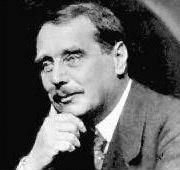 “Advertising is legalized lying.” – H.G. Wells
“Advertising is legalized lying.” – H.G. Wells
(Click here to view comments)
On Distractions
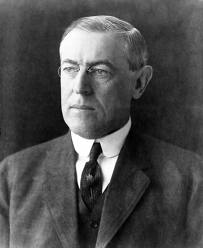 Widower Woodrow Wilson fell in love with Edith Galt in 1915. The President’s doorkeeper summarized the situation tersely:
Widower Woodrow Wilson fell in love with Edith Galt in 1915. The President’s doorkeeper summarized the situation tersely:
“She’s a looker; he’s a goner.”
Great Quote on the Psychology of Science
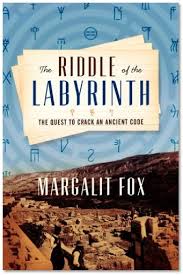 I recently read Margalit Fox’s wonderful book, “The Riddle of the Labyrinth,” which tells the extraordinary tale of how three people, working in parallel, figured out the meaning of what, to me, look like random scribbles on ancient tablets – the language known as Linear B. In trying to deduce the riddle of these scribbles, one of the scholars highlighted in the book points out:
I recently read Margalit Fox’s wonderful book, “The Riddle of the Labyrinth,” which tells the extraordinary tale of how three people, working in parallel, figured out the meaning of what, to me, look like random scribbles on ancient tablets – the language known as Linear B. In trying to deduce the riddle of these scribbles, one of the scholars highlighted in the book points out:
“A scholar’s worst enemy is his own mind. Facts are slippery things. Almost anything can be proved with them, if they are correctly selected. . . .”
Readers of my blog will know that I am very interested in the psychology of science. In this case, the person who ultimately solve the riddle of the language failed to solve the riddle for a long time as he was convinced the language could not be any form of Greek. Once he overcame his own preconception, he rapidly solved the rest of the riddle.
When trying to figure out how the world works, do your best not to let preconceptions stand in the way of an objective interpretation of the evidence.
(Click here to view comments)
Asimov on Scientific Discovery
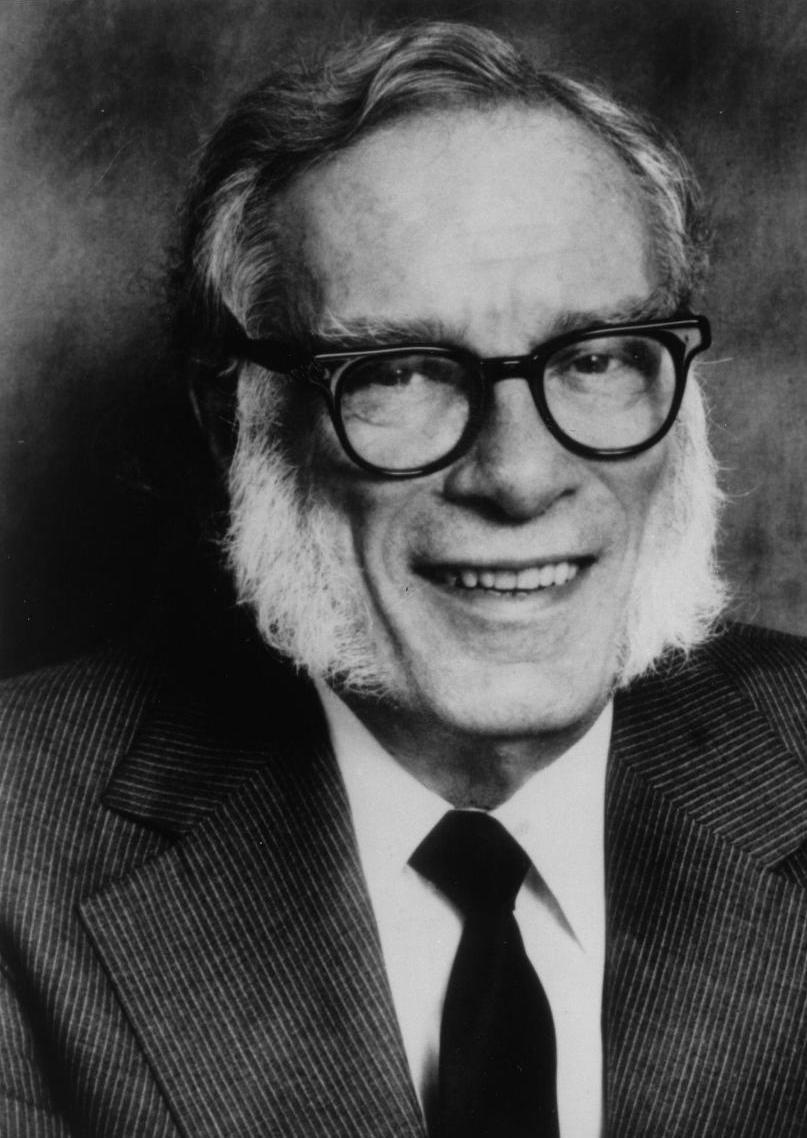 “The most exciting phrase to hear in science, the one that heralds new discoveries, is not ‘Eureka!’ [I’ve found it!], but ‘That’s funny.’
“The most exciting phrase to hear in science, the one that heralds new discoveries, is not ‘Eureka!’ [I’ve found it!], but ‘That’s funny.’
(Click here to view comments)
On Personality and Professions
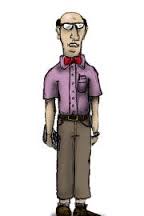 “An extroverted mathematician, goes an old joke, is one who looks at your feet while he’s talking.”
“An extroverted mathematician, goes an old joke, is one who looks at your feet while he’s talking.”
Alex Stone recounts this joke in his book, Fooling Houdini, which I wrote about in a previous post. As a philosophy major, I love to think there might be a college major more full of nerds and introverts than those of us who spent the end of our teen years reading Immanuel Kant.
(Click here to view comments)
On the Psychology of Magic
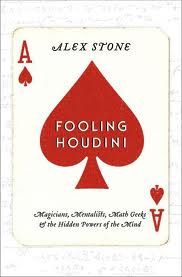 Not long ago, I had the pleasure of reading Fooling Houdini, by Alex Stone. It is a marvelous book, part memoir about how his obsession with magic pulled him away from his career in physics, but also a wonderful explanation of the psychology of how magic works its wonders. Get rid of all those images you have in your head about nerdy guys in capes performing at your children’s birthday parties. Stone doesn’t deny that magic is a nerdy pastime: “Like physics, magic is all about nerds playing god with the universe.” At one point of the book he even points out that at many magic conventions, there are more guys with mullet haircuts then there are women. But the dominant image of a magician you will develop after reading this book is of someone extremely skilled at playing with the limits of human perception.
Not long ago, I had the pleasure of reading Fooling Houdini, by Alex Stone. It is a marvelous book, part memoir about how his obsession with magic pulled him away from his career in physics, but also a wonderful explanation of the psychology of how magic works its wonders. Get rid of all those images you have in your head about nerdy guys in capes performing at your children’s birthday parties. Stone doesn’t deny that magic is a nerdy pastime: “Like physics, magic is all about nerds playing god with the universe.” At one point of the book he even points out that at many magic conventions, there are more guys with mullet haircuts then there are women. But the dominant image of a magician you will develop after reading this book is of someone extremely skilled at playing with the limits of human perception.
A good magician understands the psychology of belief. People will not believe something is remarkable if it looks too easy. Stone learned this lesson from one of his mentors, who made an analogy between magic and juggling:
World-class jugglers know to drop at least once during a performance, because it makes their act appear all the more difficult, drumming up suspense for the finale and driving home the message that they’re operating at the extreme edge of human potential.
For this reason, a real expert at card tricks won’t make it look like he is an expert at handling cards. He will shuffle the deck in what looks like a haphazard manner. He might drop some cards once in a while. But this feigned clumsiness is part of what makes the end result of his tricks that much more impressive.
As Stone points out, “Magic tricks can fool you even after you know the secret, because they exploit perceptual mechanisms that are etched into our brains.” For those who work in close contact with their audience, it is crucial to understand how people react to proximity, and to touch:
“Minor tactile cues can exert a measurable influence on our judgment, our perception of people and places, our decisions and social behaviors, even our willingness to part with cash. Waiters and waitresses who casually touch customers on the hand or shoulder for a second or even less at the end of a meal earn bigger tips and boost their restaurants’ ratings, as measured by exit surveys. A friendly pat on the shoulder from a broker makes clients less risk-averse. The chance that a grocery store shopper will agree to sample a new treat increases by 28 percent when the product demonstrator touches them lightly on the upper arm during the request. Shoppers who’ve been touched leave the store later, spend more, and rate the store more favorably on average. A slight, unobtrusive tap on the arm makes random strangers more willing to participate in mall intercept interviews and street surveys and predisposes them to bum you a smoke or comply with marketing requests. By promoting group cohesion, interpersonal touch also improves the performance of sports teams and enriches family life.”
See this concept demonstrated masterfully in a video featuring the world’s most entertaining pickpocket, Apollo Robbins.
If you want a better understanding of magic, and more importantly human nature, read Alex Stone’s book.
(Click here to view comments)
Thought of the Day from Albert Einstein
The most incomprehensible thing about the world is that it is comprehensible.
